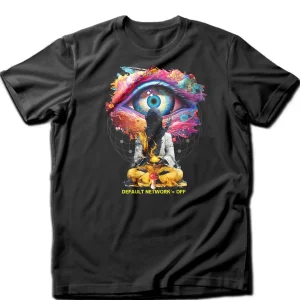In the expansive realm of consciousness exploration and self-discovery, a practice that has captured the fascination of many is microdosing mushrooms. This emerging trend, embraced by those seeking subtle transformations and holistic well-being, has led to intriguing discussions about the potential benefits of incorporating small doses of psychedelic mushrooms into daily routines. As we delve into the intricacies of microdosing mushrooms, guided by insights from experts in psychology, neuroscience, and the psychedelic renaissance, we embark on a journey that uncovers the multifaceted dimensions of this practice.
The Landscape of Microdosing Mushrooms: A Glimpse into the Subtle Realm
Microdosing mushrooms, marked by the consumption of minimal amounts of psychedelic fungi, has garnered attention as a potential avenue for personal growth and cognitive enhancement. Rooted in ancient traditions and revitalized in contemporary settings, this practice involves ingesting doses of mushrooms that are sub-perceptual, inducing effects that are gentle and transformative rather than overwhelming.
Silicon Valley, known for its innovative spirit, has been at the forefront of embracing microdosing mushrooms. Visionaries and forward-thinkers have turned to this practice in pursuit of heightened creativity, problem-solving abilities, and a unique vantage point on the challenges they face. The influence of this tech hub has propelled microdosing mushrooms into the limelight, prompting global conversations about its potential implications.
The Potential for Cognitive Enhancement: Expanding Our Mental Horizons
Central to the allure of microdosing mushrooms is the possibility of cognitive enhancement. Advocates suggest that consuming sub-perceptual doses of psychedelic mushrooms may lead to heightened cognitive abilities. This enhancement encompasses an array of cognitive attributes, including increased creativity, improved problem-solving skills, and the fostering of abstract thinking. The potential for cognitive enhancement through microdosing mushrooms aligns with the demands of a rapidly evolving world that values adaptability and innovation.
However, it’s crucial to approach the relationship between microdosing mushrooms and mental health with caution. While anecdotal reports highlight potential benefits for conditions like post-traumatic stress disorder (PTSD) and depression, the interactions between psychedelic substances and mental health concerns remain complex. The role of microdosing mushrooms in addressing these challenges requires rigorous scientific inquiry and a comprehensive understanding of the potential risks.
Exploring Emotional Resilience and Mood Elevation
Among the most captivating aspects of microdosing mushrooms is its purported impact on emotional well-being. Enthusiasts often recount experiences marked by improved mood, enhanced emotional resilience, and a heightened sense of connection to the world around them. These effects resonate with the potential benefits of consuming larger doses of psychedelic mushrooms, yet microdosing allows individuals to explore emotional enhancements without delving into intense altered states.
The tapestry of mood elevation is woven intricately into the fabric of microdosing mushrooms. Accounts of heightened positivity, emotional stability, and an overall sense of well-being underscore the potential benefits of this practice. By offering a gentle pathway to emotional transformation, microdosing mushrooms invites individuals to engage with their emotions in novel ways.
Balancing Therapeutic Potential and Responsible Engagement
As discussions about microdosing mushrooms unfold, it’s essential to consider its therapeutic potential and responsible engagement. The practice has garnered attention for its potential benefits in alleviating symptoms of depression, anxiety, and other mental health challenges. However, differentiating between therapeutic microdosing and recreational use is crucial. Therapeutic microdosing seeks to address specific mental health concerns, while recreational use may involve larger doses for altered states of consciousness.
Psychedelic substances, including mushrooms, are integral to the conversation around microdosing. Their potential for therapeutic and recreational applications shapes the landscape of microdosing mushrooms. Understanding the nuances of these substances and their interplay with cognitive function, mood, and mental health is paramount for informed decision-making and responsible engagement.
The Path Forward: Ethical Considerations and Evolving Insights
As we peer into the future of microdosing mushrooms, ethical considerations and scientific inquiry stand as pillars of exploration. The potential for cognitive enhancement, mood improvements, and therapeutic effects beckons us to examine the ethical implications of this practice. Responsible engagement, informed consent, and comprehensive research are essential components of navigating the terrain of microdosing mushrooms.
Silicon Valley’s influence on the microdosing mushrooms landscape remains palpable. This hub of innovation serves as a fitting backdrop for the convergence of consciousness exploration, technology, and personal transformation. The partnership between Silicon Valley and the psychedelic renaissance underscores the potential for microdosing mushrooms to shape the future of holistic well-being.
Navigating the Intersection of Mental Health and Microdosing Mushrooms
As we navigate the intricate terrain of microdosing mushrooms, it’s imperative to address the intersection of this practice with mental health concerns. The potential benefits of microdosing mushrooms for conditions such as depression, anxiety, and post-traumatic stress disorder (PTSD) have ignited significant interest. While anecdotal accounts offer glimpses of improvements in mood and emotional well-being, comprehensive scientific research is necessary to determine the efficacy of microdosing mushrooms in addressing mental illness.
Psychoactive substances, including psychedelic mushrooms and lysergic acid diethylamide (LSD), play a central role in both the microdosing discourse and the broader landscape of mental health. The subjective effects of these substances, when consumed in sub-perceptual or larger recreational doses, interact with the intricate fabric of human consciousness. While microdosing mushrooms has been associated with reported improvements in mood, the potential for exacerbating mental health symptoms also demands careful consideration.
Unveiling the Subjective Effects: Personal Explorations
The realm of subjective effects is where microdosing mushrooms transcends from theory to lived experience. Those who engage in this practice often describe a range of subjective effects that influence their perception of self and the world around them. These effects are deeply personal and diverse, with individuals reporting altered thought patterns, enhanced sensory perception, and shifts in emotional intensity.
The subtle yet profound impact of subjective effects can lead to transformations in self-awareness and emotional regulation. However, the individual nature of these experiences highlights the importance of self-awareness and mindful engagement. It is crucial to recognize that subjective effects may vary from person to person, making it essential for individuals to approach microdosing mushrooms with openness and a spirit of self-discovery.
Microdosing Mushrooms and Recreational Use: Exploring Boundaries
While the conversation around microdosing mushrooms often revolves around its potential therapeutic benefits, the practice also exists within the context of recreational use. Distinguishing between microdosing and larger recreational doses is crucial in understanding the diverse ways in which individuals engage with psychedelic substances. While microdosing focuses on sub-perceptual doses that avoid intense altered states, recreational doses may lead to profound shifts in consciousness.
Recreational use raises important questions about intention, responsibility, and the potential risks associated with larger doses. The recreational exploration of psychedelic substances like lysergic acid diethylamide (LSD) and psychedelic mushrooms is accompanied by altered perceptions, vivid visual experiences, and potential challenges in maintaining a grounded sense of reality. Responsible use, comprehensive knowledge, and mindful engagement are essential when venturing into the realm of recreational psychedelic experiences.
Incorporating Science and Personal Experience
As the journey through the landscape of microdosing mushrooms unfolds, it’s essential to integrate both scientific inquiry and personal experience. The potential benefits, risks, and ethical considerations require a balanced approach that draws from multiple sources of knowledge. The nexus of scientific research, anecdotal reports, and personal insights shapes the evolving narrative of microdosing mushrooms, contributing to a comprehensive understanding of its potential implications.
The synergy between scientific exploration and personal exploration is exemplified in the conversations about improvements in mood, subjective effects, and the broader implications of microdosing mushrooms. This dynamic interplay underscores the need for interdisciplinary collaboration that bridges science, wellness, and conscious exploration, paving the way for a holistic understanding of the practice.
In Conclusion: Unveiling the Potential of Microdosing Mushrooms
In conclusion, the practice of microdosing mushrooms invites us to explore its potential benefits while traversing the delicate terrain of cognitive enhancement, emotional well-being, and mental health considerations. As we navigate this landscape, the multifaceted dimensions of microdosing mushrooms spark conversations that bridge science, wellness, and the boundless realm of human potential.
Disclaimer: This article offers a collective perspective on the potential benefits of microdosing mushrooms. It does not provide medical advice or endorse the use of substances.


